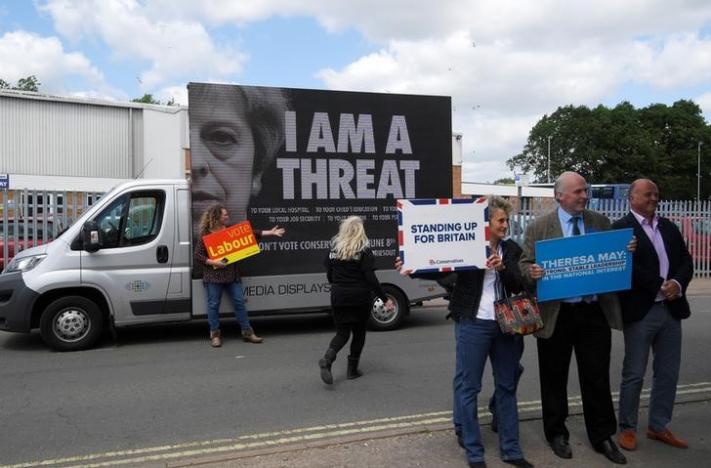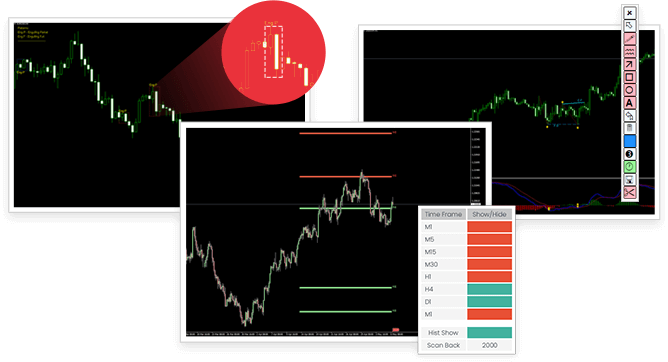
Britons began voting on Thursday in an UK election called by Prime Minister Theresa May to strengthen her hand in looming Brexit talks, with her personal authority at stake after a campaign that saw her lead in opinion polls contract.
Polling stations opened at 0600 GMT amid tight security nationwide after two Islamist attacks killed 30 people in Manchester and London in less than two weeks, thrusting the issue of how to counter militant violence to the top of the agenda in the closing stages of the campaign.
A flurry of opinion polls on Wednesday gave May’s Conservatives a lead ranging between one and 12 percentage points over the main opposition Labour Party, suggesting she would increase her majority – but not win the landslide foreseen when she called the election seven weeks ago.
Headline rates for sterling, hit two-week highs in morning trade in London after the latest polls.
But market bets on how volatile the pound will be over the next 24 hours surged to their highest in a year as some surveys showed the election had become too close to call.
A final opinion poll by Ipsos/MORI for the Evening Standard is expected to be published shortly before 1100 GMT.
Voting ends at 2100 GMT and an exit poll will be issued then. The first handful of seat results are expected to be announced by 2300 GMT, with the vast majority of the 650 constituencies due to announce results between 0200 GMT and 0500 GMT on Friday morning.
A smiling May did not speak to media as she and her husband Philip voted in the village of Sonning on the River Thames in her Maidenhead constituency.
Labour leader Jeremy Corbyn grinned broadly and gave the thumbs-up to reporters and party workers as he voted in Islington, north London.
“I’m very proud of our campaign,” he said.
Both main parties were on the defensive after Saturday’s van and knife attack in the heart of London. May faced questions over cuts in the number of police officers during her six years as interior minister and Labour leader Jeremy Corbyn drew criticism for, among other things, voting against some counter-terrorism legislation.
Police investigating the London attacks said they had arrested three more suspects late on Wednesday. Two of the men, aged 27 and 29, were held on suspicion of preparing acts of terrorism while the third was detained over suspected drugs offences.
In the final hours of campaigning, both leaders returned to their core campaign messages.
“If we get Brexit right, we can build a Britain that is more prosperous and more secure, a Britain in which prosperity and opportunity is shared by all,” May said in a last appeal to voters to trust her to “knuckle down and get the job done”.
After becoming prime minister without an election in the turmoil that followed last year’s EU referendum, May wants a personal mandate and a parliamentary majority bigger than the one she inherited from predecessor David Cameron.
Basing her campaign on the slogan of “strong and stable leadership”, she has said she alone could face the 27 other EU leaders and clinch a deal that would give Britain control over immigration policy while ensuring favourable trading terms.
She has portrayed Corbyn as the weak and hapless leader of a spendthrift party that would hit voters with a “tax bombshell”, crash the economy and flounder in the Brexit negotiations.
Corbyn has hit back that Conservative fiscal austerity imposed since 2010 has hurt the poor and widened social inequalities.
VIEWS FROM BRUSSELS
May’s campaign has not gone to plan, and as the poll leads of 20 points or more she was enjoying when she called the early election in April have shrunk, talk of a landslide victory has faded and her personal standing has taken a hit.
As a result, the extent of her control over her fractious party and of her margin for manoeuvre going into the Brexit talks will hinge on the size of her majority, and on whether it is perceived to be a significant improvement on Cameron’s.
Provided she wins, she will have averted at least one risk: by pushing back the date of the following election to 2022 rather than 2020 as originally planned, she has ensured she will not face crunch time in the Brexit talks at the same time as an election.
Some in the EU are hoping May does increase her majority, on the basis that the main risk for the bloc is a collapse in talks, and that is more easily avoided with a British government that is not vulnerable at home.
“We need a government strong enough to negotiate,” a senior EU lawmaker told Reuters.
But others have sought to downplay the impact of the election regardless of the outcome, suggesting that it was little more than a domestic political sideshow.
Source – Reuters























Nice post … Your blog is very interesting
Thanks for sharing.